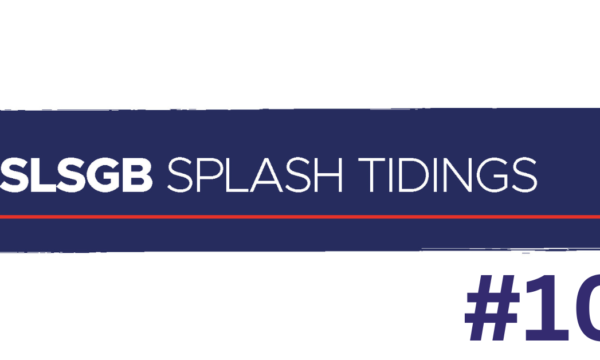 An Australian, Allan Kennedy is credited as being the founding father of the Surf Lifesaving movement in Great Britain, his passion and drive for water safety is undoubtedly the reason that in 1955 Surf Live Saving Great Britain (SLSGB) was formed.
An Australian, Allan Kennedy is credited as being the founding father of the Surf Lifesaving movement in Great Britain, his passion and drive for water safety is undoubtedly the reason that in 1955 Surf Live Saving Great Britain (SLSGB) was formed.
Read the history behind Allan Kennedy’s journey and how SLSGB was formed below.
-
1941 – 1946, Teaching surf lifesaving techniques, Australia
Kennedy first volunteered as a lifesaver at the Byron Bay Club in New South Wales before moving to Surfers’ Paradise in Queensland. He held the position of state superintendent for Queensland from 1941 to 1946 and during the war spent time instructing Australian and American troops sent to recuperate on the Gold Coast in the techniques of surf lifesaving and awarding the Bronze medallion to those who passed the test. In 1947 he spent some time in Victoria and was instrumental that year in bringing the state’s lifesaving clubs into affiliation with the Australian Surf Lifesaving Association, by helping to found the Victorian’s own state centre.
-
1951 – 1952, A move to England and promoting surf lifesaving
In 1951, Allan Kennedy’s job sent him to England. To ease symptoms of withdrawal from his beloved world of lifesaving, he made his way in May 1952 to Bude in Cornwall. Before he left Australia he had been told by fellow countrymen who had served there during the war that the Atlantic surf on its beaches would remind him a bit of home. He had, in any case, promised the SLSA’s president, Sir Adrian Curlewis, before he left Australia, that he would continue to promote surf lifesaving wherever he could.
-
1953, Founding the first lifesaving club in Bude
In the UK, as had been the case in Australia before the existence of the SLSA, the only recognised qualification for a beach lifesaver was that given by the Royal Lifesaving Society after a test carried out in still water. Kennedy soon discovered that those concerned with beach safety in Bude could and should be much better equipped to deal with emergencies in the surf and wrote to see if the SLSA might provide a reel, line and belt and a surf ski to get things started in Cornwall. In August 1953 the equipment eventually arrived and Kennedy began an intensive week of instruction with members of Bude Youth Club and others. By the end, 22 volunteers had qualified for the coveted Australian Bronze Medallion and the first British surf lifesaving club was founded.
-
1954 – 1955, Clubs rise from 1 to 3 and SLSGB is founded
A tragic incident at St Agnes, nearer to Land’s End on the north coast, would eventually bring Cornwall’s second surf lifesaving club into existence and justify the creation of a national association. On 10 August 1954 a visitor to the village got into difficulties in a very rough sea, close to rocks which had once been a harbour. A local man, Jack Plowright, grabbed the lifebelt and line, kept at the beach for emergencies, and swam out towards the man in trouble. He got to where he could all but reach the casualty but by then the 75ft lifeline was fully paid out and, wisely, he would not let go.
Plowright’s effort and the ferocity of the sea were beginning to get the better of him when a woman, Joan Pugsley, waded, then swam out through the waves with another rope. She reached the would-be rescuer and they were both pulled back to the beach and safety, but not before receiving a battering on the rocks. The visitor sadly drowned.
The community were all too well aware after this accident that a lifebelt and a heavy hemp rope half the length of a football pitch were woefully inadequate for rescuing people from the surf. They found out about the help Bude had received from Australia the previous year and asked if they, too, could be loaned a reel and modern nylon line. Meanwhile, a group of local people set about training through the winter and, with the guidance of the Bude lifesavers, a St Agnes Surf Lifesaving Club was founded. Then, in the spring of 1955, a meeting was held in St Agnes coastguard station which concluded that, with three surf clubs now in existence – Brighton Beach in Sussex had just created one – a Surf Lifesaving Association of Great Britain should come into being.
As a mark of proud parental approval, the High Commissioner of Australia invited a deputation from St Agnes to Australia House in London in May 1955 to be presented with a belt, line and reel, a gift from North Bondi Surf Lifesaving Club. In August, an eight-strong squad of St Agnes lifesavers were awarded their Bronze medallions and the movement was up and running. The growing popularity of surfing and board riding through the 1960s and 70s, inspired locals to form surf lifesaving clubs at many beaches in South West England and Wales.
-
Today
Surf Life Saving Great Britain has 9,600 members, trains over 1,000 new Lifeguards each year and the tradition of volunteer lifeguards patrolling our beaches continues with a new Patrol Framework and an operating agreement with the Coast Guard.



